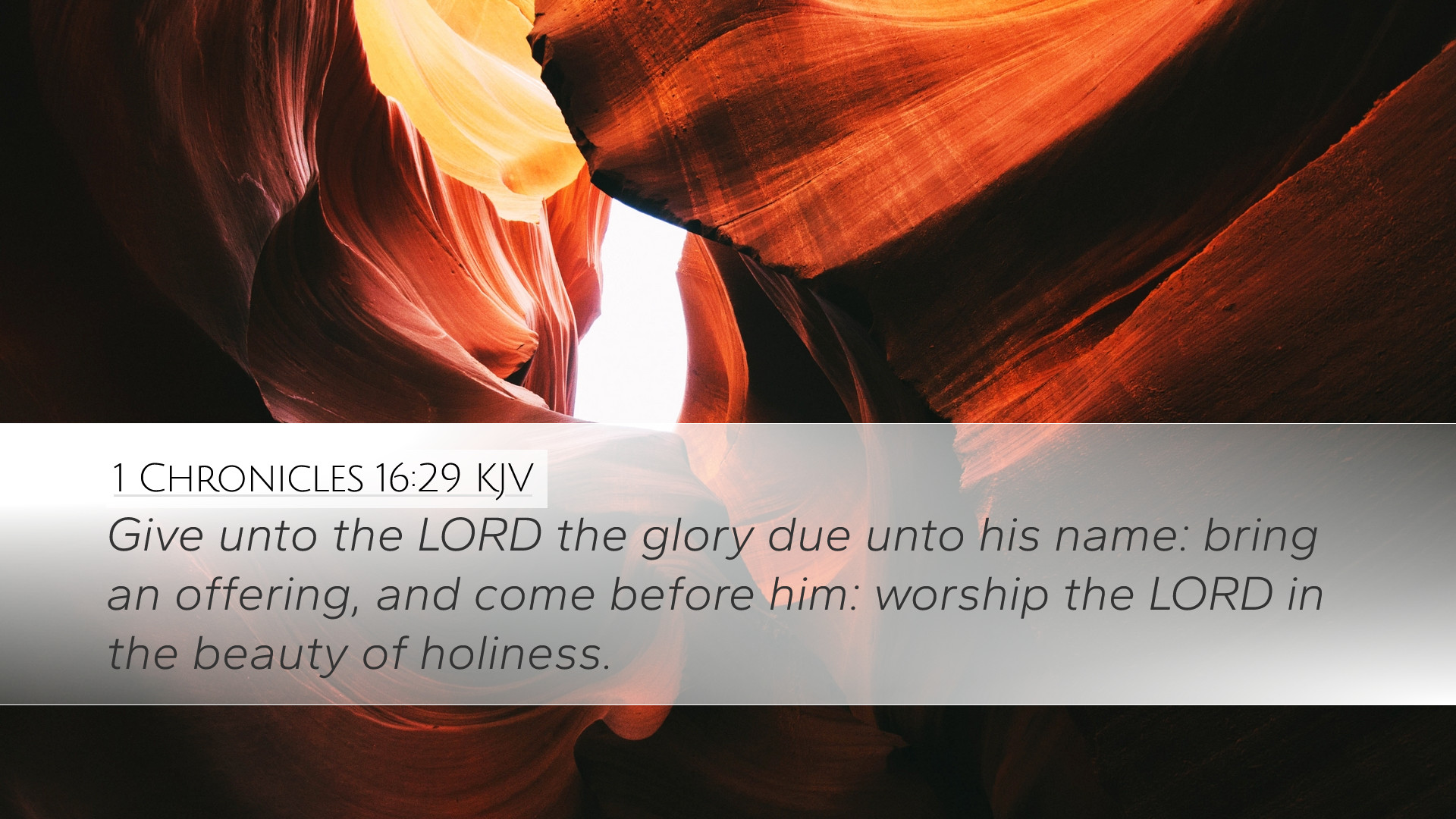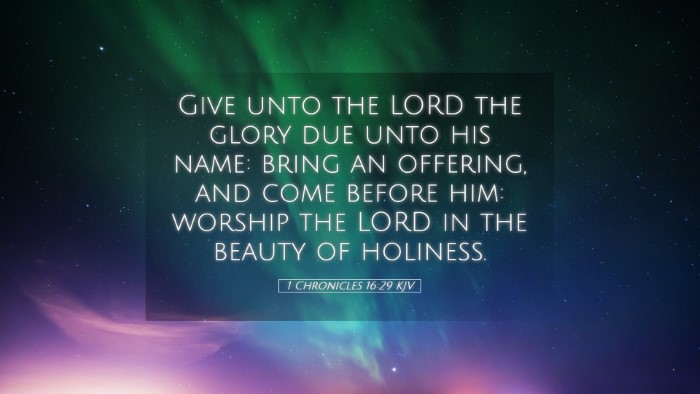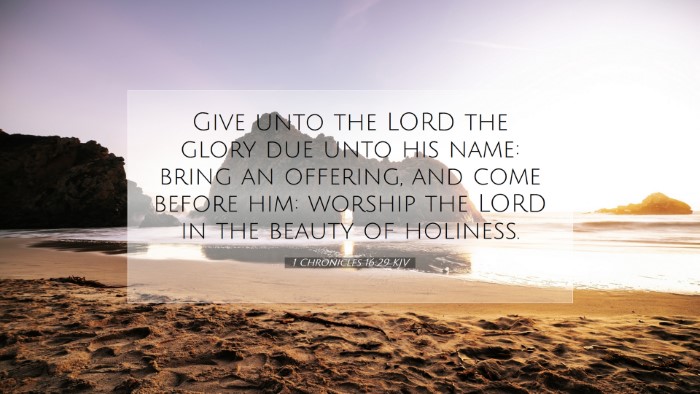Commentary on 1 Chronicles 16:29
Verse Text: "Give unto the Lord the glory due unto his name: bring an offering, and come before him: worship the Lord in the beauty of holiness." (1 Chronicles 16:29)
Introduction
This verse articulates a profound call to worship, encapsulating themes of reverence, honor, and devotion that are central to the life of faith. It emphasizes the importance of recognizing God's glory and holiness, urging believers to respond appropriately through worship and offerings. The insights derived from various public domain commentaries will illuminate the rich theological and practical implications contained within this verse.
Exegesis and Theological Insights
God's Glory
Matthew Henry's Commentary: Henry emphasizes that giving glory to God involves recognizing and proclaiming His attributes and works. It is an acknowledgment of His greatness which cannot be overstated. The term "glory" reflects God's splendid perfection; therefore, glorifying God is an act of internal devotion that manifests in external expressions of worship.
Albert Barnes: Barnes highlights that the glory due to God cannot be measured by earthly standards. In worship, believers are prompted to bring offerings as a tangible expression of their acknowledgment of God's supreme value. This act serves as a reminder that all we possess ultimately belongs to God.
Worship in Holiness
Adam Clarke's Commentary: Clarke notes the phrase "in the beauty of holiness" signifies that true worship must be characterized by purity and reverence. It reflects the inner moral and spiritual quality that believers should possess. Worship is not merely ritualistic; it necessitates a sincere heart aligned with God's will. This aesthetic of holiness is critical to worship that God desires.
Offerings as Expressions of Worship
Matthew Henry: He connects the act of bringing an offering to the worship process, asserting that offerings are a way to express gratitude and acknowledge God's provision. The physical act of giving is inseparable from the heart of worship, as it symbolizes the believer's understanding of God’s grace and generosity.
Albert Barnes: He expands this by noting that offerings should not only be material but also encompass the believer's time, talents, and treasures. The comprehensive nature of offerings embodies a lifestyle of worship that extends beyond ceremonial rituals.
Practical Applications for the Faith Community
As pastors, students, and scholars reflect on this verse, several practical applications emerge:
- Importance of Acknowledgment: Encourage congregants to consciously acknowledge God's glory in their daily lives. Worship should not be relegated to a Sunday experience but rather integrated throughout the week.
- Holistic Worship: Promote worship that encompasses every aspect of life. The beauty of holiness extends beyond the sanctuary, infusing the believer's actions, thoughts, and words, encouraging integrity in both public and private life.
- Generosity of Spirit: Foster a culture of giving within the church. Highlight that offerings are an act of worship that reflect the generosity of God. Create opportunities for individuals to give their treasure, time, and talents in service to both the church and the community.
Conclusion
1 Chronicles 16:29 serves as a comprehensive guide for believers regarding the essence of worship. The call to give glory to God, bring offerings, and worship in holiness resonates with the very core of what it means to be a follower of Christ. Through the insights gained from public domain commentaries, pastors, students, and theologians are reminded of the beauty, depth, and richness found in true, Spirit-led worship that honors God's name.


